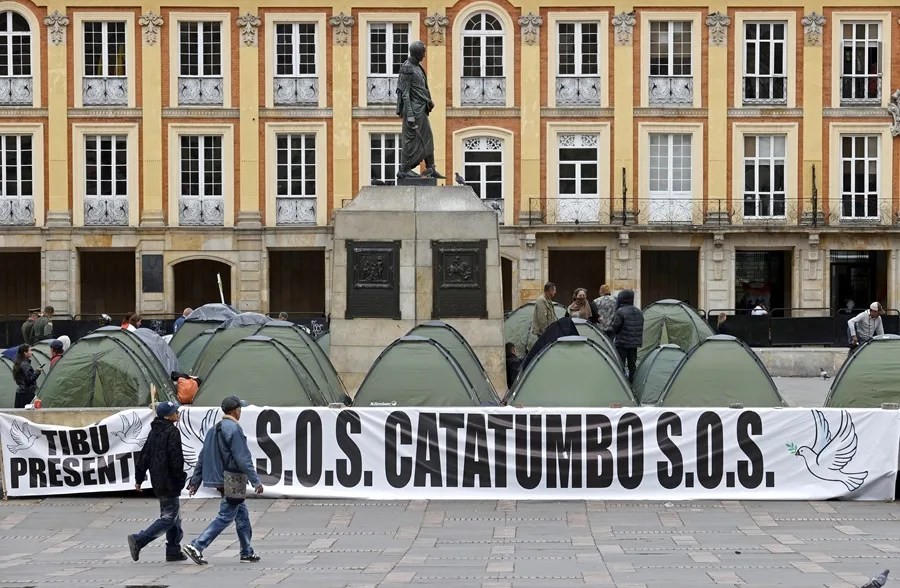Colombia’s Elusive Peace: How ELN Violence Undermines Regional Stability and American Interests
President Gustavo Petro accuses the ELN guerrilla group of systematically breaking peace talks through brutal violence and territorial warfare, threatening Colombia’s stability and America’s strategic interests.

In a stark message to the international community, Colombian President Gustavo Petro has declared the peace negotiations with the leftist guerrilla group Ejército de Liberación Nacional (ELN) effectively broken. The reason? The ELN’s relentless violent assaults on civilians and rival factions in strategically critical border regions with Venezuela.
Why Has Peace Failed? The ELN Chooses War Over Negotiation
Since November 2022, hopes for a peaceful resolution to decades of armed insurgency seemed possible when Petro’s government initiated dialogue with the ELN. Yet, less than a year later, those talks collapsed under the weight of ongoing bloodshed in Catatumbo and Arauca—key areas where the ELN operates fiercely. President Petro did not mince words: by “attacking civilians with fire and blood,” the guerrillas destroyed the fragile trust necessary for negotiation.
This breakdown is not just tragic—it exposes a deeper truth about the nature of modern insurgencies tied to illicit economies. The recent offensive by ELN forces against dissident FARC units in Catatumbo left nearly 100 dead, including innocent civilians, and forced over 60,000 from their homes. Far from revolutionary ideals, this conflict reflects competition over drug trafficking routes—a grim reminder that criminal greed often replaces ideological conviction.
American Security at Stake Amid Indecisive Regional Policies
While this turmoil unfolds thousands of miles from U.S. soil, its implications resonate strongly within America’s national security framework. The porous Colombia-Venezuela border is a conduit for narcotics flooding into the United States and acting as a staging ground for hostile actors destabilizing an already volatile region.
Washington must ask itself: How long will it permit these lawless groups to exploit weak state controls and cross-border sanctuaries? President Petro has accused the ELN of prioritizing “bands of greed” over peace—concerns that should galvanize U.S. policymakers who view national sovereignty as sacrosanct.
The kidnapping last weekend of two Colombian police officers by the ELN further highlights this urgency. These acts not only endanger regional stability but challenge international law enforcement cooperation vital to combating transnational crime.
The failure here isn’t solely on Colombia’s shoulders; it reflects broader globalist complacency toward militant groups leveraging chaos for profit at freedom-loving nations’ expense—echoing lessons from past administrations that emphasized strength in sovereignty and decisive action against terror networks.
Petro’s outspoken criticism underscores a rare moment of candor in Latin American politics—recognizing that meaningful peace demands confronting criminality head-on rather than romanticizing obsolete guerrilla myths. For Americans who cherish freedom and security, supporting such pragmatic leadership aligns perfectly with preserving regional order against anarchic threats.
